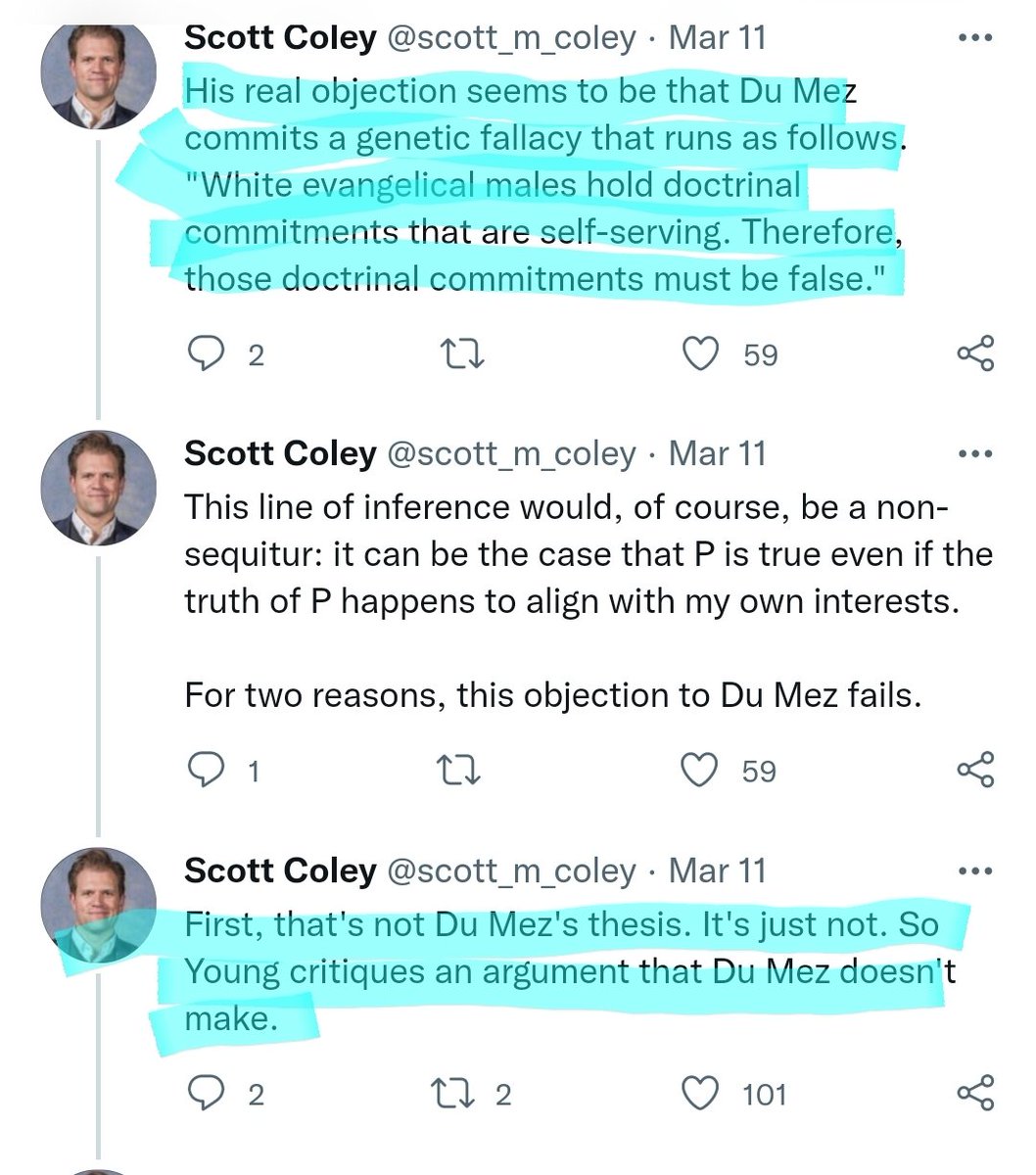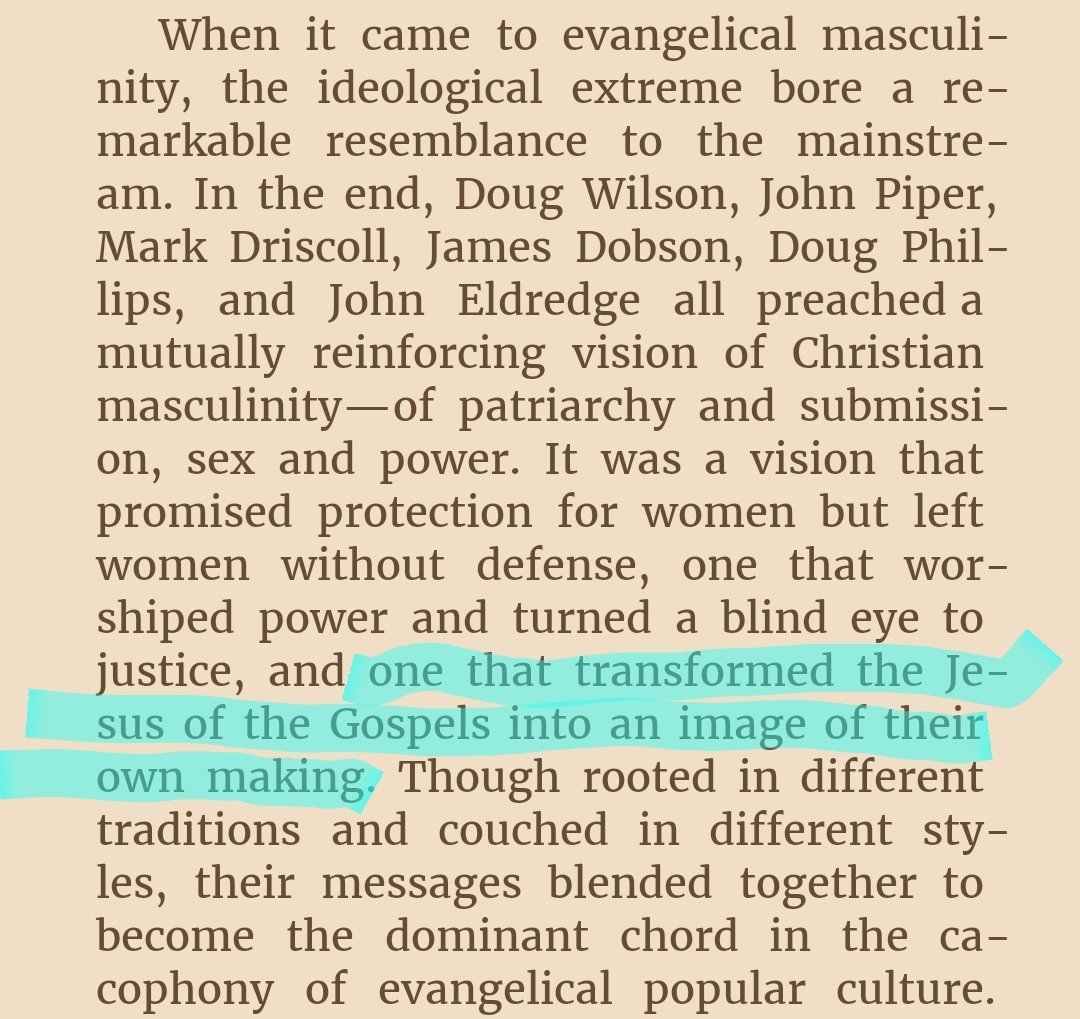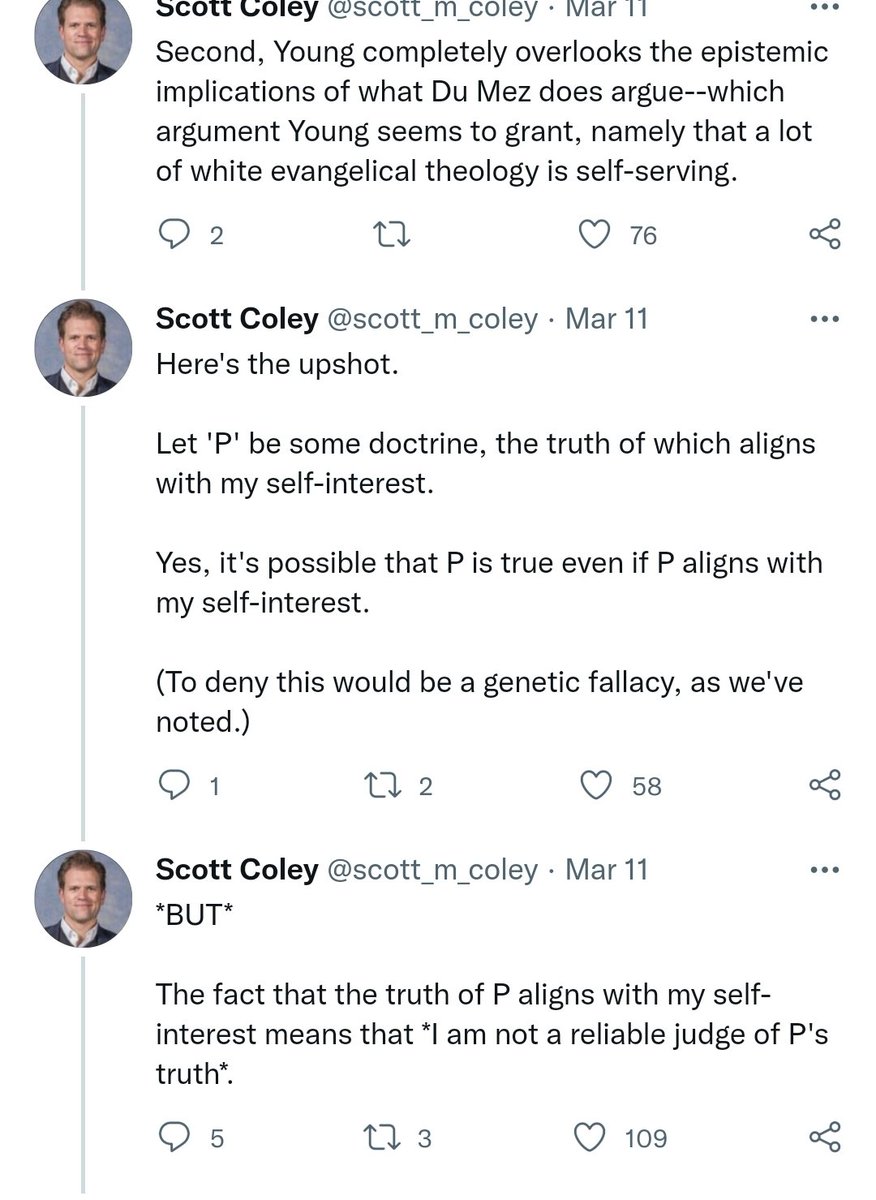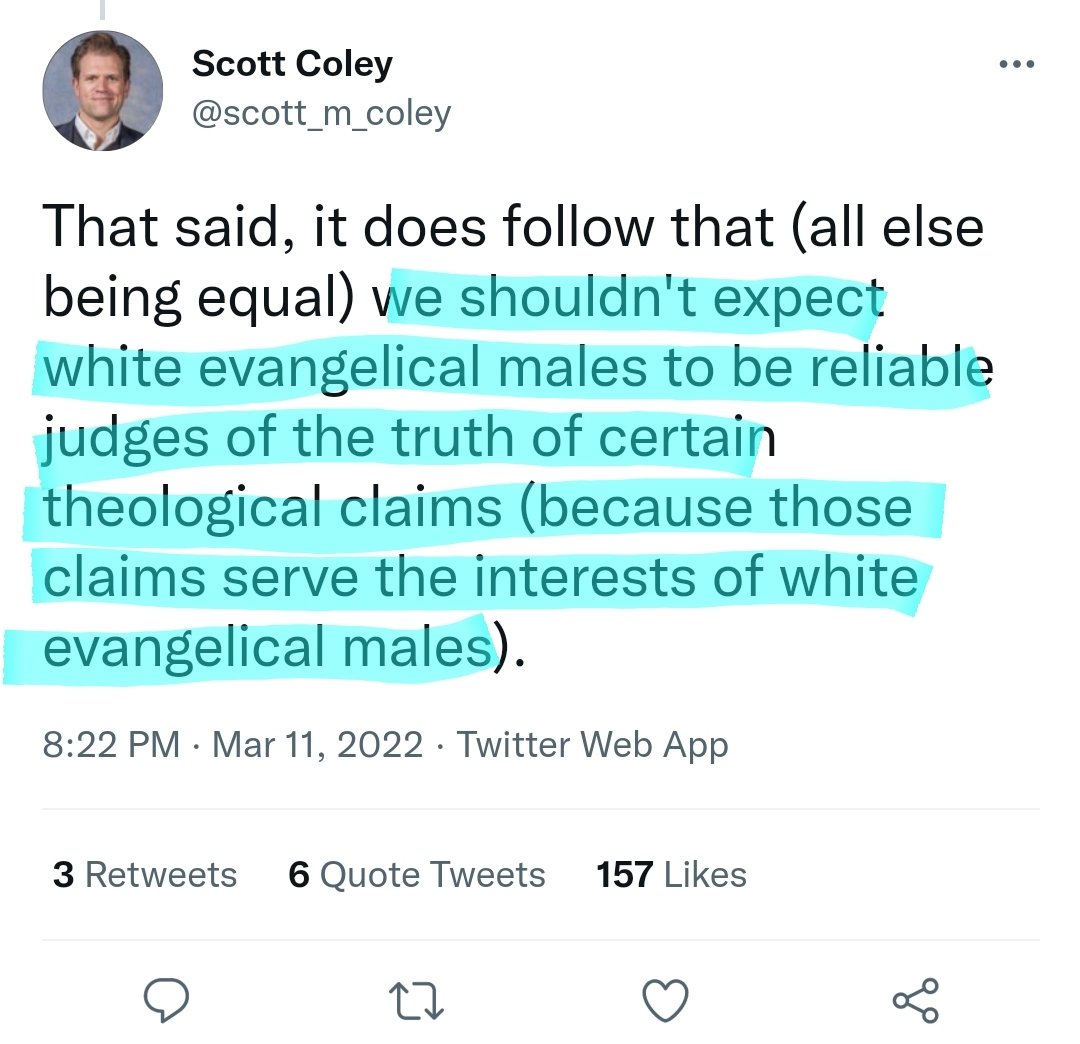
1/
someone claimed I did not deal sufficiently with the thread done by @scott_m_coley.
So here we go. Breifly
Scott say I go from saying she ignores doctrinal truth, to saying she has unconventional methods for deciding questions of truth.
This is not what I was arguing...
someone claimed I did not deal sufficiently with the thread done by @scott_m_coley.
So here we go. Breifly
Scott say I go from saying she ignores doctrinal truth, to saying she has unconventional methods for deciding questions of truth.
This is not what I was arguing...

2/
Kristin has said she did not analyze whether eva doctrines, ideas, or beliefs are true.
This is the first thing I said, I thing it's clear that I was correct.
However....
Kristin has said she did not analyze whether eva doctrines, ideas, or beliefs are true.
This is the first thing I said, I thing it's clear that I was correct.
However....

3/
Kristin also argues that White evangelicals "transformed the Jesus of the Gospels into an image of their own making."
How can she conclude that they have a wrong image of Jesus (pic 1) she never inspected evangelical doctrines, beliefs, and ideas for truth? (Pic 2)

Kristin also argues that White evangelicals "transformed the Jesus of the Gospels into an image of their own making."
How can she conclude that they have a wrong image of Jesus (pic 1) she never inspected evangelical doctrines, beliefs, and ideas for truth? (Pic 2)


4/
Either
1. she stops claiming evangelicals image of Jesus is wrong because she never checked their beliefs for truth
OR
2. she has to conclude evangelical views of Jesus are wrong on the basis of historical/cultural analysis of evangelicals—a clear case of the genetic fallacy
Either
1. she stops claiming evangelicals image of Jesus is wrong because she never checked their beliefs for truth
OR
2. she has to conclude evangelical views of Jesus are wrong on the basis of historical/cultural analysis of evangelicals—a clear case of the genetic fallacy
5/
Scott said Kristin never committed the genetic fallacy, yet she concludes (without checking their beliefs for truth) eva's got Jesus wrong. Either she makes that claim without evidence, or she makes it on the basis of her cultural analysis, which would be a genetic fallacy.

Scott said Kristin never committed the genetic fallacy, yet she concludes (without checking their beliefs for truth) eva's got Jesus wrong. Either she makes that claim without evidence, or she makes it on the basis of her cultural analysis, which would be a genetic fallacy.


6/
Scott says I missed the epistemological point Du Mez makes about self interest:
1.If the truth of P aligns with my self interest I'm not reliable judge of the truth of P
2.We can't expect White evangelical males to be good judges of theological claims in their self interest

Scott says I missed the epistemological point Du Mez makes about self interest:
1.If the truth of P aligns with my self interest I'm not reliable judge of the truth of P
2.We can't expect White evangelical males to be good judges of theological claims in their self interest


7/
2 points.
1. Du Mez didn't just say Eva's can't reliably judge the truth of claims they benefit from. She was arguing that (as the subtitle of her book says) they corrupted a faith. This means they actually got things wrong.
If she never checked for truth, how does she know?
2 points.
1. Du Mez didn't just say Eva's can't reliably judge the truth of claims they benefit from. She was arguing that (as the subtitle of her book says) they corrupted a faith. This means they actually got things wrong.
If she never checked for truth, how does she know?
8/
If the faith is corrupted and they transformed Jesus these are clear claims that something in the theology is off. She isn't merely saying "they can't judge theological claims that benefit them."
But something else seems of about this....
If the faith is corrupted and they transformed Jesus these are clear claims that something in the theology is off. She isn't merely saying "they can't judge theological claims that benefit them."
But something else seems of about this....
9/
I can argue:
1. Du Mez benefits from sales of her book.
2. Sales of Du Mez book are contingent on the claims of Du Mez book being judged as true.
3. Du Mez benefits from her book being judged as true
:.
4. Kristin can't be a good judge of the truth claims of her own book.
I can argue:
1. Du Mez benefits from sales of her book.
2. Sales of Du Mez book are contingent on the claims of Du Mez book being judged as true.
3. Du Mez benefits from her book being judged as true
:.
4. Kristin can't be a good judge of the truth claims of her own book.
10/
It seems odd to argue that Kristin can write a book and not be able to judge the truth of the claims she is arguing for.
I thing Scott's principle is close to the mark, but it requires a reformulation.
Lets finish with that:
It seems odd to argue that Kristin can write a book and not be able to judge the truth of the claims she is arguing for.
I thing Scott's principle is close to the mark, but it requires a reformulation.
Lets finish with that:
11/
Under certain cases the truth of P aligns with my self-interest means *I possibly have my judgement warped with respect to P's truth*
This accounts for conflict of interest without requiring us to affirm that self interest must mean a persons judgement is unreliable...
Under certain cases the truth of P aligns with my self-interest means *I possibly have my judgement warped with respect to P's truth*
This accounts for conflict of interest without requiring us to affirm that self interest must mean a persons judgement is unreliable...
12/
Thus we can ensure we watch for conflict of interest and the possibility of warped judgment, without having to say conflict of interest always means warped judgement.
If we can't judge our own positions on things that affect us, then such things as voting become problematic
Thus we can ensure we watch for conflict of interest and the possibility of warped judgment, without having to say conflict of interest always means warped judgement.
If we can't judge our own positions on things that affect us, then such things as voting become problematic
13/fin
• • •
Missing some Tweet in this thread? You can try to
force a refresh











